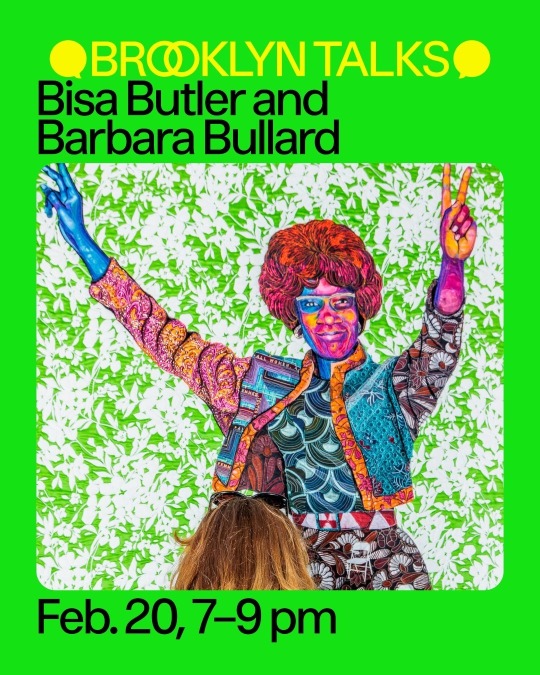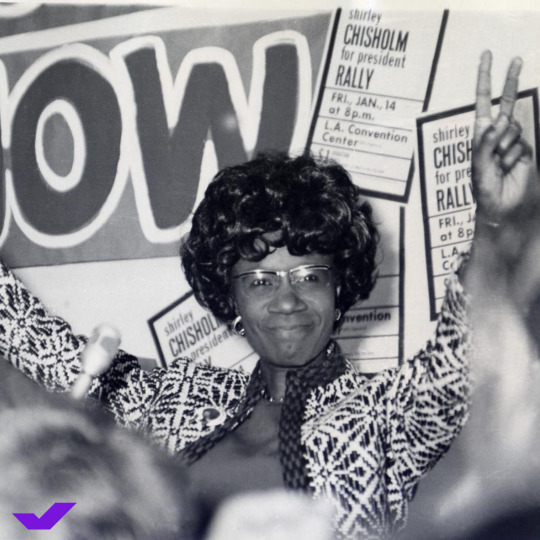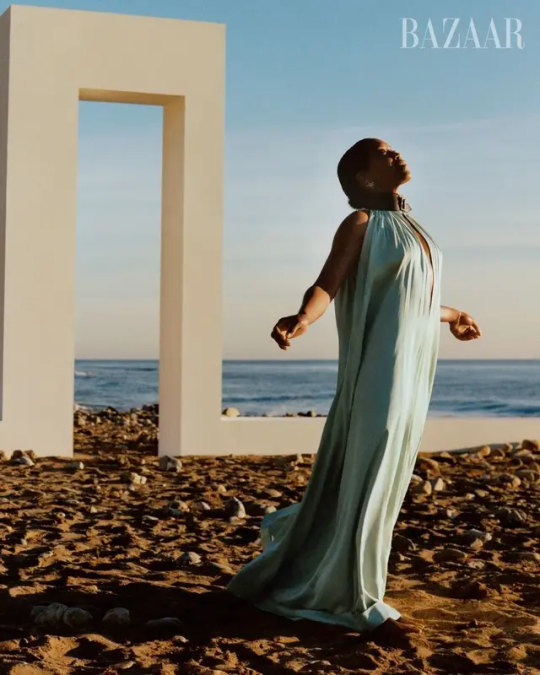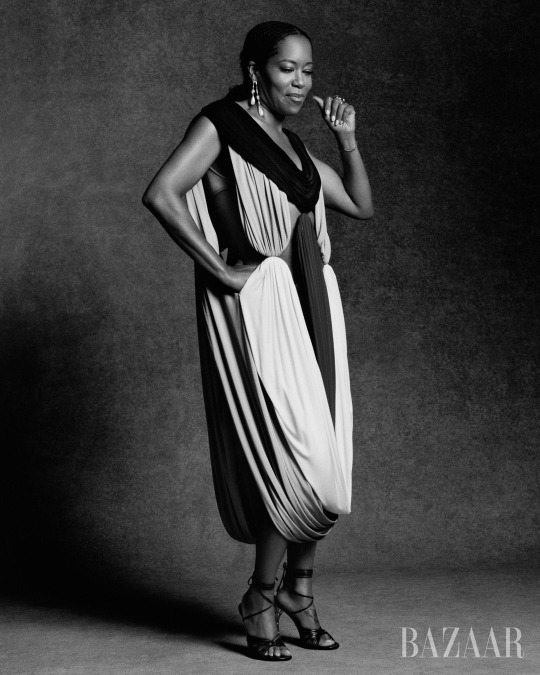#Shirley Chisolm
Explore tagged Tumblr posts
Text
In 1972, in the Democratic primary, we had our first Black woman presidential candidate, “unbought and unbossed” Shirley Chisolm, who knew that she was only running a symbolic campaign, a protest campaign, that America was not going to elect a non-white person or a non-male person, let alone someone with the temerity to be both at the same time—of course she didn’t get the nomination. When she ran, Barack Obama was going on eleven. Kamala Harris turned eight later that year. I doubt anyone was telling them they could grow up to be president.
I was so moved by how Kamala Devi Harris was received when she became our presidential candidate in July of 2024, 52 years after Shirley Chisolm, how much more enthusiasm and respect and how much less racism and sexism than I anticipated from Democrats and progressives. It made me feel like I lived in a better country, a country that had somehow invisibly, incrementally, moved forward, in those ways too slow and subtle to measure until a milestone like this is reached. Somehow something as subtle as values, consciousness, norms had changed through the work so many people were doing in so many ways, the feminists and antiracists, the slow process of decentralizing power just a bit from the long grim era when only white men ran and won and governed.
Things are changing. Last week, President Biden went to the Gila Reservation in Arizona to apologize for the Indian boarding schools and other genocidal acts toward Native Americans. He said in a tweet:
Today, I’m in Arizona to issue a long overdue presidential apology for this era—and speak to how my Administration has worked to invest in Indian Country and our relationships with Tribal Nations, advance Tribal sovereignty and self-determination, respect Native cultures, and protect Indigenous sacred sites. We must remember our full history, even when it’s painful. That’s what great nations do. And we are a great nation.
A few decades ago, Native people were largely ignored by the non-native mainstream, and what the US government had done was justified when it was not just ignored. We live in the impossible world, the world that no one quite imagined, in which things happen—marriage equality, the possibilities brought by solar energy, a Black woman presidential candidate—that were inconceivable not long ago.
I think of all the land-back happening around the West, of the four dams coming down on the Klamath River under the stewardship of the several Native nations there, of the salmon already swimming more than a hundred miles up that river to Oregon after more than a century of being shut out, of this presidential apology that acknowledges 532 years of colonialism. Biden’s tweet strategically rebukes Trump and MAGA and all the fragile white nationalists by insisting that this country is already great, and that greatness means remembering and taking responsibility for the wrongs of the past, including this genocidal racism.
That this country is polarized is often deplored, but the backlash against the progress on human rights, equality, inclusion, environmental protection, and acknowledging the US’s often-brutal history, is no reason to give up or cave in on that progress, though it’s a reason to reach out to try to convey that we all benefit from it.
What’s also been moving to me since this election really picked up momentum a few months ago is to see how much people care about something beyond narrow and immediate self-interest, to see that we care about public life, about the fate of the nation, about the rule of law, about the survival of the most vulnerable. To see that we are idealists, we are dreamers, we are citizens in that sense not of nationality but of membership in the greater community. Something striking this time around is to see men speak up for reproductive rights to a degree and in a way they mostly have not before.
We love so much more than the narrow version of who we are acknowledges: we love justice, love truth, love freedom, love equality, love the confidence that comes with secure human rights.
So many powerful forces conspire to try to convince us that we are basically selfish animals, that all we want is the the goods of private life, some safety, some sex and personal love and family, some nifty possessions. That’s the story of human nature we get told the most. But in fact most human beings are altruists and idealists, which is to say we want a lot more, we care about a lot more, we need a lot more to feel right with the world. We want justice and peace, want to live in a society that supports these things, want a relationship with nature, and we want that nature to be protected and thriving.
We want a world that reflects our values, we feel injured by things that may not affect us directly, whether it’s a wildfire or a loss of rights. Of course they’re not all the same values, and yeah some people believe they need to persecute immigrants or trans youth to have their happy world, some people still think nature is so vast and immutable we can keep trashing it without consequences. But mainly what I’m trying to say is that most people care about a lot beyond the usual definition of self-interest. We’re bigger than that.
You can see that by how much people care about the outcome of this election, whether they’re sitting home refreshing polls as if the polls tell us what will happen or doing the work that decides what will happen. Someone said to me a week or so ago that people over 70 shouldn’t be allowed to vote because they had no self-interest in the future. I rebuked him, because across the political spectrum most of us vote our broad values, not our narrow self-interest, unless our values are that we’re just our self-interest (and that’s a core belief of the right).
Most of us are idealists. There’s been a lot of exclamation in recent years about right-wing working-class voters who vote against their self-interest, often portrayed as baffling, as a sign of ignorance or confusion. What’s really going on that they’re more committed to their values than their practical self-interest. So are we (though you could also argue that the recognition that we are inextricably connected to each other and to nature means that self-interest and the well-being of the whole are not separate).
I used the word care, but let me clarify: what we care about is what we love. And we love so much more than the narrow version of who we are acknowledges: we love justice, love truth, love freedom, love equality, love the confidence that comes with secure human rights; we love places, love rivers and valleys and forests, love seasons and the pattern and order they imply, love wildlife from hummingbirds to great blue herons, butterflies to bears. This always was a love story.
Part of what gives our lives meaning is the confidence or at least hope that these good things will persevere beyond us.
What I learned from studying how most human beings respond to disasters (for my book A Paradise Built in Hell) is that they’re brave, generous, creative, acting in solidarity with those around them, and that those experiences of immediacy, of community, of care, of connection and meaningful work, are often so profound that people speak up with joy even amidst the devastation and loss. Because we want meaning and meaningful work so much, we want connection so much, we want hope, we want to believe in ourselves and the people around us and humanity in general.
I’m hearing so many stories like that from the survivors of the climate-intensified hurricanes that trashed western North Carolina, coastal Florida, and other parts of the Southeastern USA. From the victims of a climate-intensified catastrophe that has wrecked whole towns and torn out roads, flattened forests, washed away homes and put parts of Asheville underwater. I don’t want any more disasters like that, and I’m a climate activist to try to keep nature from getting more violent and destructive, which it will if we keep being violent and destructive toward the climate. But I do want us to know who we are, and how hungry we are for meaning, purpose, and connection, and sometimes disaster lets us see that.
When it comes to the climate we want faith in the future, we want the symphony of life to continue with the harmonies, the beauties, the integration of the parts into one harmonious whole to continue. Part of what gives our lives meaning is the confidence or at least hope that these good things will persevere beyond us, that there will be bison grazing the prairies in the year 2124, that there will be whales migrating in the oceans, that wildflowers will bloom in spring and pollinators will come for the nectar and leave with the pollen, that the people we love who are one or six or seventeen or their grandchildren will have a chance to enjoy some of the things we have, that there will be joy and beauty and possibility in the year 2074 and after.
Polls offer the false promise of knowing what is going to happen, but what is going to happen in this election is what campaigners, activists, and the electorate make happen. It is not yet decided. We are deciding it with what we do, as voters, as organizers, as voices for truth, justice, inclusion, the reality of the climate crisis and the importance of acting on it. In June, I got to meet one of my heroes, Congressman Jamie Raskin when he gave a keynote for the Third Act chapters in DC, Virginia and Maryland. (Third Act is a climate group founded by Bill McKibben for US people over 60; I’m on its board.) He gave me his memoir of prosecuting the impeachment of Trump after January 6, right after his beloved son Tommy had died by suicide, and there’s a dazzling passage in it that reminds us of the power of participation.
He writes that, during his first campaign, there was an article in a local newspaper quoting a pundit who described my chances of victory as “impossible”; and nine months later, when we got 67 percent of the vote, there was another article, in the Washington Post, quoting a pundit who said my victory was “inevitable.” So we went from impossible to inevitable in nine months because the pundits are never wrong, but as I told Tommy, we showed that nothing in politics is impossible, and nothing in politics is inevitable. It is all just possible, through the democratic arts of education, organizing, and mobilizing for change.
We’re here to make the victory of democracy and the defeat of authoritarianism not just possible but actual. We’re here to make history. We’re here to get out the vote. For the climate, for the children, for the continuance of this experiment in democracy, imperfect as it has been.
_____________________________
This is a version of a talk given to Third Act Nevada as part of a rally for people getting out the vote in that swing state.
Rebecca Solnit
Writer, historian, and activist Rebecca Solnit is the author of twenty-five books on feminism, environmental and urban history, popular power, social change and insurrection, wandering and walking, hope and catastrophe. She co-edited the 2023 anthology Not Too Late: Changing the Climate Story from Despair to Possibility. Her other books include Orwell’s Roses; Recollections of My Nonexistence; Hope in the Dark; Men Explain Things to Me; A Paradise Built in Hell: The Extraordinary Communities that Arise in Disaster; and A Field Guide to Getting Lost. A product of the California public education system from kindergarten to graduate school, she writes regularly for the Guardian, serves on the board of the climate group Oil Change International, and in 2022 launched the climate project Not Too Late (nottoolateclimate.com).
#Rebecca Solnit#not too late#lithub#election 2024#women#women's rights#human rights#environmentalism#activism#Shirley Chisolm#women's history#vote
45 notes
·
View notes
Text
It is incomprehensible to me, the fear that can affect men in political offices. It is shocking the way they submit to forces they know are wrong and fail to stand up for what they believe. Can their jobs be so important to them, their prestige, their power, their privileges so important that they will cooperate in the degradation of our society just to hang onto those jobs?--Shirley Chisolm, Unbought and Unbossed
Fifty years after Chisolm's memoir was published, nothing has changed.
3 notes
·
View notes
Text
❤️🖤💚#ArtIsAWeapon Happy Black History Month!!!!
Image & caption reposted from @brooklynmuseum “I have never cared too much what people say. What I’m interested in is what they do.” – #ShirleyChisholm

During the next Brooklyn Talks on February 20, we’re reflecting on the legacy of Congresswoman Chisholm, who represented New York's 12th congressional district in Bed–Stuy for seven terms from 1969 to 1983.
We’ll be joined by artist Bisa Butler (@bisabutler), cultural producer Barbara Bullard (@barbaramgmt), and curator Stephanie Sparling Williams (@ssparlingwilliams).
Following the event, get after-hours access to Toward Joy: New Frameworks for American Art where you can see Butler’s quilted portrait of Chisholm up-close.
Learn more and save your spot through the link in our bio.
📷 200th Birthday Bash at the Brooklyn Museum, October 5, 2024. (Photo: Evan Angelastro)
#BkMTalks #BkMAmericanArt #BisaButler #BrooklynMuseum #BlackHistoryMonth #ShirleyChisholm
#Shirley Chisolm#Bisa Butler#ArtistTalk#BlackHistoryMonth#BrooklynMuseum#ArtIsAWeapon#BlackGirlArtGeeks
3 notes
·
View notes
Text
#shirley#regina king#amirah vann#shirley chisolm#mmb#christina jackson#barbara lee#huey p newton#civil rights#civil rights movement#black history#my edit#actress singer
18 notes
·
View notes
Text
As was probably inevitable, Hillary Clinton is speaking next. The crowd goes wild as she comes out, and it's quite some time until she can start talking. I think if I took a drink every time she said, "Thank you, thank you so much," and that just made them cheer louder, I'd be quite hammered by now.
She acknowledges that this excitement is just off the charts, in here and across the country. "First though, let's salute President Biden." He showed what it was to be a true patriot. And wow, this speech really does feel like a send-off for him.
Hillary acknowledges how today is the 104th anniversary of women getting the right to vote. Her own mother remembered getting the right to vote.
And since then, women have been carrying the torch forward. Shirley Chisolm in 1972 ran for president, letting other women dream bigger.
In 1984 Geraldine Ferraro was the first major party woman nominee for VP.
And, of course, in 2016, Hillary's nomination as president. Nearly 66 million voted for her, and "we kept our eyes on the future. Well, my friends, the future is HERE!"
Their mothers, though, would say, "Keep going!" (the audience starts chanting "Keep going! Keep going!") (I am getting the feeling that this audience will chant anything and everything, and it's pretty delightful)
But, progress is not guaranteed. Going forward together or splitting into us vs them. Harris can lead people forward, together.
Hillary draws a parallel between herself and Harris' beginnings as young lawyers and references how Harris worked in Family Court to try and help children. "And yes, she will restore abortion rights nationwide."
Donald Trump fell asleep at his own trial and woke up to 37 convictions. (the crowd starts chanting "Lock him up") Meanwhile, Kamala sat in the situation room and looked out for the country's safety.
Hillary mentions that Kamala won't disrespect Medal of Honor honorees (which Trump just did yesterday) or send love letters to dictators. The President's job is to take care that the laws are faithfully executed.
Kamala cares for the people. Trump only cares about himself. But now he's on the run. But we can't let up now. We have to fight for the truth, and fight for Kamala as she would fight for us.
And omg, it's a "takes a village" reference. What a blast from the past.
"Together we've put a lot of cracks in the highest, hardest glass ceiling." And through those cracks, Hillary sees freedom. Freedom to made decisions about our lives, our loves, our families. The freedom to work with dignity and prosper. To worship as we choose or not. To speak our minds freely and honestly. Freedom from chaos and corruption.
(I take back what I said about Hochul's speaking. Hillary is way better)
Don't get distracted or complacent. Be proud champions for the truth and for the country.
"The future is here! It's within our grasp! Let's win it!" she concludes, being played off by Katy Perry's "Fight Song," which was her anthem back in 2016.
8 notes
·
View notes
Text
The Mountaintop
We lift every voice and sing — The name of a Black Woman who stood at the mountaintop. With audacity that reflected off the glass ceilings that shattered when you spoke her name.
Kamala Devi Harris.
You stood. Standing in the spirit of Shirley Chisolm, Unbought, Unbossed and Undenying. You dreamed.
The girl who would not be deferred and went on to write a letter to the world with a signature that now reads — It’s Possible.
It’s Possible for a Black girl from Oakland, California, to see the mountaintop.
And when she gets there to take the world off her shoulders and sit.
Sitting in the resilience of Fannie Lou Hammer, you took the world by Storm. Never going Rouge and letting anyone take you out of character.
You laughed. You filled rooms with hope and integrity and lit paths with perseverance.
You opened. Doors that had been closed.
You stepped — Over walls that had been built.
You climbed. The Mount Everest of expectations with a smile that sat at the intersection of joy and justice.
Because a country built in spite of you, you stood in spite of.
You are the embodiment of what can be, unburdened by what has been.
Rest in the knowing that you are ours.
We thank you for the view from your moutaintop

#2024 presidential election#election 2024#early voting#us election#kamala for president#tim walz#harris walz#kamala 2024#presidential election#harris walz campaign#kamala harris#harris walz ticket#harris walz administration#Trump vance#harris walz 2024#trump vance 2024#harris walz rally#breathe#self care#maga 2024#trump2024#donald trump#healing#Election day
2 notes
·
View notes
Photo

#OTD in 1968: Shirley Chisolm became the first Black woman elected to serve in the United States Congress.
Representative Chisolm (D-N.Y.) served from 1969 to 1983, and also became the first Black person and woman to seek a presidential nomination from a national political party.
Thank you to Shirley Chisolm for breaking down barriers that would allow 57 more Black women and women of color to be elected to our Congress to date.
As we celebrate her legacy, we also recognize the work that still needs to be done to ensure all of us are represented in our democracy. As Rep. Chisholm famously said: “If they don’t give you a seat at the table, bring a folding chair.” 💜 🪑
8 notes
·
View notes
Text

-- Shirley Chisolm: First African-American woman to serve in the United States Congress from 1969 to 1983.
0 notes
Text
Men always underestimate women. They underestimated me, and they underestimate women like me.--Shirley Chisolm, Unbought and Unbossed

2 notes
·
View notes
Text
🧡📷 #ArtIsAWeapon
Award-winning actress-director @IamReginaKing is gorgeous and glowing in these photographs by @luisalbertorodriguezstudio for @harpersbazaarus

Images & caption reposted from @harpersbazaarus Introducing our April 2024 cover star: @iamreginaking.
For BAZAAR’s Possibility Issue, the Oscar-winning actor and director opens up about the legacy of Shirley Chisholm—who she will portray in the upcoming film, ‘Shirley’— the loss of her son, and finding a way forward.
When it came time to photograph this very cover, King carefully selected a @poloralphlauren gown in her son Ian’s favorite color— #orange—in honor of him.


Read story by Salamishah Tillet



Photography: @luisalbertorodriguezstudio
Styling: @mr_carlos_nazario
Creative Director: @lauragenninger
Story: @salamishah
Hair: @iamaraxilindsey
Makeup: @makeupbylatrice
Manicure: jessicaleenails
Entertainment Director: @angcutt
Production: @ctdinc
Set design: @spencervrooman
#ReginaKing #ShirleyChisolm #BlackBeauty #springsolstice
#ReginaKing#HarpersBazaar#CoverStory#BlackWomenInHollywood#ArtIsAWeapon#Shirley Chisolm#SpringSolstice
0 notes
Text
Today's birthday is Shirley Chisolm!

1 note
·
View note
Text
Still Not Ready
Shirley Chisolm I was going to drive across America to visit my older brother in California next summer but his sudden death this year trashed that plan. I hadn’t seen him since my mother’s funeral many years ago and I was looking forward to the adventure. It would also be a check mark on my bucket list. I had told him I was coming and had started an online file in Trello to plot the trip, but…

View On WordPress
0 notes
Text
Pink is the Color of Horror
When I was teenager, I was a witness to Shirley Chisolm’s candidacy in 1972. She was the first African American to run for a major party’s nomination for President. She failed in that endeavor, but I was young and what she did gave me something more than hope. I have lived my whole life with the expectation that one day I would see a woman in the White House. Continue reading Pink is the Color…

View On WordPress
#abstract comics#artifact#asemic#asemic writing#geranium lake properties#glp#impractical natures#lcmt#lin tarczynski#masks#pink#poetry comics#tiav#vispo#visual poetry#visual poetry comics
1 note
·
View note
